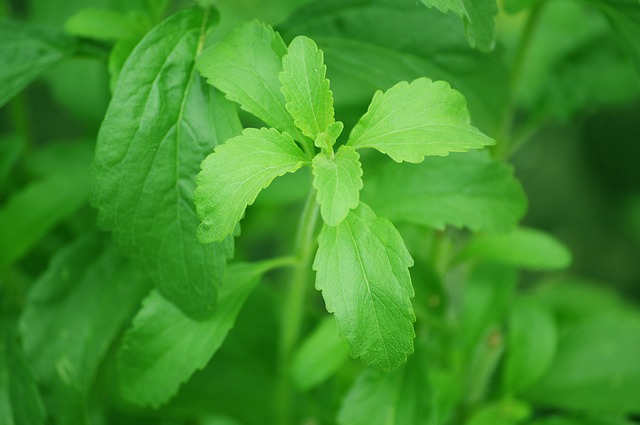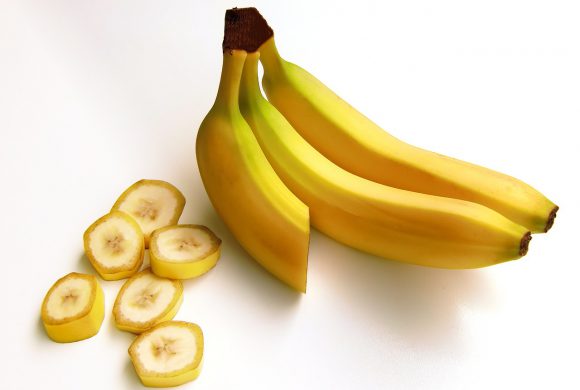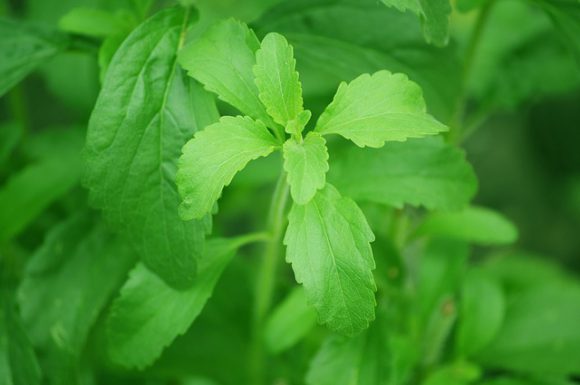
Is Stevia Safe?
Steeeevia…Is it saaaafe? Ok, I’m just being annoying. Why? Well, I’m a little annoyed, at all these people who make claims about foods, and can never backup their claims with any substantial evidence. Hell, they can’t even give a remotely logical argument for what they believe. In this case, the sweetener stevia, is the subject of my rant. Here are some silly arguments: “It’s bad because it’s artificial or not  natural”. Bananas, as we know them today, are not natural. Whaaaaaa? Yes. it’s true. But, you don’t claim that they are bad because they are man made (cultivated to have tiny unfertilized seeds), do you? Don’t believe me, go look it up. Conversely, “It’s natural, so it must be safe”. Well, poison ivy is natural, is it safe? Try eating white baneberry, it’s natural. But, I bet you won’t live to tell about it. It will definitely cure all other problems and ailments permanently (in case you didn’t get it…you will die).
natural”. Bananas, as we know them today, are not natural. Whaaaaaa? Yes. it’s true. But, you don’t claim that they are bad because they are man made (cultivated to have tiny unfertilized seeds), do you? Don’t believe me, go look it up. Conversely, “It’s natural, so it must be safe”. Well, poison ivy is natural, is it safe? Try eating white baneberry, it’s natural. But, I bet you won’t live to tell about it. It will definitely cure all other problems and ailments permanently (in case you didn’t get it…you will die).
Now the opposite is true for both cases. Some artificial things may be bad and some natural things can be good. Defining them as natural or artificial is not an indication of their worth. It’s just plain stupid. But yet we hear all these so called health gurus and fitness pundits, going on and on about stuff being natural and therefore good for you. Safer they say. How ’bout we look at actual facts and merits of arguments, beyond superficial pronouncements, and determine whether there is any weight to what is being claimed. You can apply that way of thinking to pretty much everything. It’s smart.
Okay, now that I’m done with my tirade against stupidity, let’s move on. Is stevia safe? It’s extremely popular and there has definitely been claims that it’s bad because it is not  natural. Actually it comes from the stevia plant. It might be highly processed by the time it gets to you, but it is not considered an artificial sweetener. It is over a hundred times the sweetness of sugar, for reference. But, there is usually a bitter after taste, that try as you might, you just can’t seem to get rid of it. Now, on to the claims.
natural. Actually it comes from the stevia plant. It might be highly processed by the time it gets to you, but it is not considered an artificial sweetener. It is over a hundred times the sweetness of sugar, for reference. But, there is usually a bitter after taste, that try as you might, you just can’t seem to get rid of it. Now, on to the claims.
Claims and Truths The first is the cancer causing claims. This started, I think, with some poorly done studies in the early 90’s which have been refuted since. A 2010 review study, showed that there were no toxic effects from stevia consumption and there could in fact be benefits to diabetic patients. A 2009 review discusses their therapeutic benefits, suggesting that they have anti-hyperglycemic, anti-hypertensive, anti-inflammatory, anti-tumor, anti-diarrheal, diuretic, and immunomodulatory actions. It should be noted that effects on plasma glucose level and blood pressure were only observed when those parameters were above normal averages. Other studies showed that short term use of stevia (1-3 months ) had no effect on blood pressure, whilst longer usage (1-2 yrs) showed evidence of reducing blood pressure. It is also suggested that it aids in glucose tolerance. These studies need to be expanded upon, with more robust testing and for longer periods of time, before anything definitive can be claimed. But, still the general trend is towards not being harmful.
had no effect on blood pressure, whilst longer usage (1-2 yrs) showed evidence of reducing blood pressure. It is also suggested that it aids in glucose tolerance. These studies need to be expanded upon, with more robust testing and for longer periods of time, before anything definitive can be claimed. But, still the general trend is towards not being harmful.
Side Effects Some people complain of bloating, nausea and diarrhea, amongst other things (sneezing, coughing). I’ve never had any of these problems. Now, I’m not saying that these claims are false. I truly believe, for some people there are these negative side effects. But that’s like saying, some people have allergic reactions to peanuts, or certain fruits. These allergies cause them to itch, swell up and have flu like symptoms. Does that mean we should ban peanuts and fruits? or that nuts and fruits are bad, so avoid them at all costs? Look, if you have these symptoms when using stevia, then…wait for it….stop using it!. This is just simple common sense. But for the rest of us, there is no data that shows stevia is actually bad. I don’t know about other sweeteners, I haven’t done any research on them. As for the silly argument “why would you use it, if there is a chance that it could be bad?” Well simple, you can apply that logic to everything in life. There is always that chance with everything. I’m definitely not going to crawl into a cave and avoid the world because of some minute possibility of some unknown, unfounded threat, so there. Unless you can find me some pretty solid evidence against it, or at least a good logical argument, I’m going to continue to use it.
Summary Studies on stevia have shown some evidence for health benefits, in terms of improved blood glucose tolerance, lower blood pressure, anti tumor properties….Whilst these studies are not conclusive, they definitely don’t show any negative effects of stevia use. Sure some people have an allergic response to it. But so do many other people to a variety of foods, environments and situations. At the end of the day, the choice is yours, whether you want to consume it or not. But, when your health nut friend, tells you it’s not natural so it’s bad, tell them it comes from a plant and is as natural as natural sugar. Remind them that bananas are not natural and was cultivated to be in the form it is today. If they say it causes cancer, tell them to prove it. If they argue that it is a chemical and is bad, remind them everything we consume is made of various chemicals. You can do what you think is best, but I will continue to use it. No trouble.
P.S. The Healthy Goat was last seen running for the the toilet at a fast food joint (Cluck Cluck’s Fried Chicken ‘n Beer). It probably wasn’t a good idea to eat a dozen packets of stevia, especially if you’re allergic.

Thank you for an informative and practical article and it made a lot of sense. Totally agree with common sense. Sometimes we forget to use them.
I have not heard anything bad came from Stevia yet but then again I have not been looking either. I tried it before and has not fully used it as my sugar substitute yet.
My motto is “eat everything in moderation.” Even if it appears to be a good thing, too much of it may not be as effective either.
Very interesting post. I used to take stevia as a sugar replacement and had never really heard much about the negative side effects you mention. I’m not one of those natural health fanatics but I do try to avoid refined sugar.
My sugar replacement of choice nowadays is xylitol, like stevia it is many times sweeter than sugar. But unlike regular sugar, which damages our teeth, xylitol prevents rather than causes tooth decay. Thanks for the great post.
Hmmm, interesting I never heard of xylitol. I have to look into it.
Hi, an interesting article! There has been a few reports recently on how the advertising industry is using the term “natural” to promote a lot of snacks that are high in sugar and clearly not healthy products. So it’s really important that there are places where we can get an unbiased very on whether products are natural or healthy. I believe the key is moderation which I think many people struggle with.
Thanks for the comment.
Hi there,
Quite stunning what I read about monkeys fave food, not natural really makes me wonder how many more of what we normally call natural are not so natural!
Excellent article and I will look into stevia as replacement for sugar, which I dont use that much of anyway. How would it go in a coffee or tea?
Thanks. I don’t drink coffee and I drink tea without sugar or sweetener. So, I’m not sure how it would work. Just remember it’s a lot sweeter than sugar…so smaller amounts is better.
Interesting article you have here, especially since I (you can call me stupid if you want) have never heard of this so called stevia and I didn’t find my answer until half way through that it is some type of sweetener. I guess because I do not use artificial sweetener and I actually try to stay away from that other “white stuff”. You make some very good points here as to the health issues. It seems everything has side effects unless you go totally all natural, including no pesticides.
So tell me why bananas are not natural?
Angela
Originally wild bananas had large seeds which could be planted to produce more fruit. They were cultivated to have very small seeds that are not fertilized and developed. This was done by human intervention and does not occur naturally.